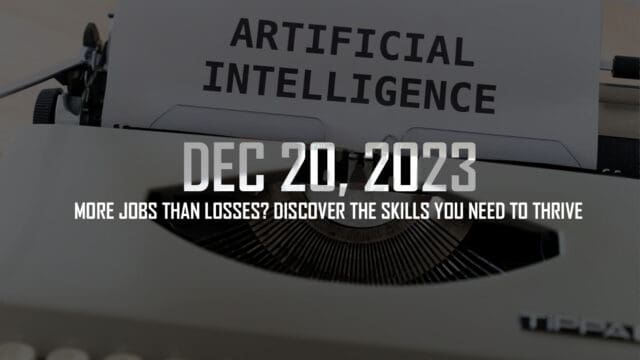Tamil Nadu IT Minister Foresees AI Creating More Jobs Than Eliminating
Palanivel Thiaga Rajan, Tamil Nadu’s Minister for Information Technology, asserts that Artificial Intelligence (AI) will, in the near term, generate more jobs than it eliminates. Speaking at an ICT Academy conference in Hyderabad, he emphasized the substantial need for diverse datasets, stating that the current gap ensures an increased demand for jobs in AI-related fields.
தமிழ்நாடு தொழில்நுட்பத் துறையின் ICT அகாடமி @ictacademyindia ஹைதராபாத் நகரில் ஒருங்கிணைத்த BRIDGE 23 எனும் மனித வளம், வளர்ச்சி & அணுகல் குறித்த கருத்தரங்கில், மாண்புமிகு தகவல் தொழில்நுட்பவியல் மற்றும் டிஜிட்டல் சேவைகள் துறை அமைச்சர் முனைவர் @ptrmadurai அவர்கள் தலைமை விருந்தினராக… pic.twitter.com/BYRkGUGwHB
— Office of PTR (@OfficeOfPTR) December 20, 2023
The minister anticipates that the upcoming generation of AI will contribute to job creation, mitigating concerns about widespread unemployment due to automation.
LinkedIn Report Highlights AI Skills Surge in India
India ranks among the top five countries globally in the adoption of Artificial Intelligence (AI) skills, with a 14-fold increase in LinkedIn profiles citing AI skills in the past seven years.
Approximately 43% of the Indian workforce experienced widespread AI use in their organizations over the past year, prompting 60% of workers and 71% of Gen Z professionals to recognize the value of acquiring AI skills for career advancement.
In 2023, two-thirds of Indians express their intent to learn digital skills, with AI and Machine Learning topping the list. The rise of ChatGPT has contributed to a doubling of LinkedIn members globally adding AI skills to their profiles.
The report emphasises the growing significance of soft skills like creativity and communication in India, with 91% of top executives recognizing the increasing importance of AI skills, surpassing the global average of 72%.
University of Tokyo Researchers Enable Humanlike Gestures in Robots with GPT-4 Integration
The University of Tokyo researchers have developed Alter3, a humanoid robot, bridging large language models like GPT-4 to enhance humanlike gestures without traditional hardware-dependent controls.
Unlike the past, where specific coding for each activity was required, GPT-4 enables robots to learn from natural language instructions, offering a paradigm shift in robot control. Alter3, equipped with 43 axes for intricate upper body movement and detailed facial expressions, demonstrates actions like taking selfies and playing air guitar, showcasing the potential of AI-guided robotic interactions.




















